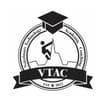Podcast
Questions and Answers
Which personal quality is least essential for a veterinarian when interacting with clients?
Which personal quality is least essential for a veterinarian when interacting with clients?
- Calm, alert, and patient demeanor
- Pleasant and cheerful personality
- Strong organizational and time management skills (correct)
- Excellent communication skills
What is a common stressor that veterinary professionals must manage?
What is a common stressor that veterinary professionals must manage?
- Constant care of animals (correct)
- Handling paperwork
- Scheduling regular check-ups
- Communicating with colleagues
Which factor is NOT typically associated with working conditions in veterinary careers?
Which factor is NOT typically associated with working conditions in veterinary careers?
- Potential for injury
- Predictable work hours (correct)
- Constant care of animals
- Unpleasant tasks
What quality is especially important for a veterinarian during crises?
What quality is especially important for a veterinarian during crises?
Which of the following best describes the nature of tasks that veterinary professionals may face?
Which of the following best describes the nature of tasks that veterinary professionals may face?
What significant event in the 17th and 18th centuries prompted European governments to fund veterinary research?
What significant event in the 17th and 18th centuries prompted European governments to fund veterinary research?
When was the first veterinary college founded, and where was it located?
When was the first veterinary college founded, and where was it located?
What was the primary focus of early veterinary medicine before the 20th century?
What was the primary focus of early veterinary medicine before the 20th century?
Which of the following statements about veterinary education in the 1850s is true?
Which of the following statements about veterinary education in the 1850s is true?
What percentage of US veterinary school students were female in 2003?
What percentage of US veterinary school students were female in 2003?
What was a limitation of the early veterinary practitioners regarding their knowledge?
What was a limitation of the early veterinary practitioners regarding their knowledge?
How did the demographics of veterinarians change by the end of 2019 in the US?
How did the demographics of veterinarians change by the end of 2019 in the US?
What early medical tool is noted in the history of veterinary medicine from around 2200 BCE?
What early medical tool is noted in the history of veterinary medicine from around 2200 BCE?
What is a primary requirement for veterinarians to practice in the United States?
What is a primary requirement for veterinarians to practice in the United States?
Which of the following statements about specialized training for veterinary healthcare team members is true?
Which of the following statements about specialized training for veterinary healthcare team members is true?
What is the usual duration of college courses required to become a veterinary technician?
What is the usual duration of college courses required to become a veterinary technician?
Which of the following best describes the role of a veterinary technician?
Which of the following best describes the role of a veterinary technician?
What significant change occurred in 1961 regarding veterinary technician training?
What significant change occurred in 1961 regarding veterinary technician training?
What is required for a veterinary technician to be licensed, registered, or certified?
What is required for a veterinary technician to be licensed, registered, or certified?
What subjects do veterinary technicians study before receiving specialized training?
What subjects do veterinary technicians study before receiving specialized training?
How many AVMA-CVTEA-accredited programs are there currently in the United States?
How many AVMA-CVTEA-accredited programs are there currently in the United States?
Flashcards
AVMA accreditation
AVMA accreditation
The American Veterinary Medical Association (AVMA) approves and accredits college programs for veterinarians and veterinary technicians.
Veterinary Technician (VT)
Veterinary Technician (VT)
A graduate of an AVMA-accredited Veterinary Technology program who works under a veterinarian's direct supervision.
VTNE
VTNE
The Veterinary Technician National Exam, a crucial test for veterinary technician licensure.
Veterinary Technician Education
Veterinary Technician Education
Signup and view all the flashcards
AVMA-CVTEA accredited programs
AVMA-CVTEA accredited programs
Signup and view all the flashcards
Veterinary Technician Requirements
Veterinary Technician Requirements
Signup and view all the flashcards
Veterinarian Licensing
Veterinarian Licensing
Signup and view all the flashcards
Veterinary Technology Programs
Veterinary Technology Programs
Signup and view all the flashcards
Veterinarian Personality
Veterinarian Personality
Signup and view all the flashcards
Veterinarian Communication
Veterinarian Communication
Signup and view all the flashcards
Veterinarian Patience under Pressure
Veterinarian Patience under Pressure
Signup and view all the flashcards
Veterinarian Euthanasia
Veterinarian Euthanasia
Signup and view all the flashcards
Veterinarian Work Schedule
Veterinarian Work Schedule
Signup and view all the flashcards
Ancient Veterinarians
Ancient Veterinarians
Signup and view all the flashcards
Veterinary Plagues
Veterinary Plagues
Signup and view all the flashcards
First Veterinary College
First Veterinary College
Signup and view all the flashcards
Early Vet Focus
Early Vet Focus
Signup and view all the flashcards
US Veterinary Schools
US Veterinary Schools
Signup and view all the flashcards
Veterinary Research
Veterinary Research
Signup and view all the flashcards
Shift in Veterinary Focus
Shift in Veterinary Focus
Signup and view all the flashcards
Female Veterinarians Today
Female Veterinarians Today
Signup and view all the flashcards
Study Notes
AVMA and Veterinary Technician Education
- Veterinary technician career field is relatively new
- In the past, veterinarians trained their own support staff
- A time-consuming task that meant staff members often only learned skills and procedures they needed for that particular veterinary practice
- In 1961, colleges began offering training programs known as animal technician or animal health technician programs
- These programs offer training programs for kennel workers, laboratory animal attendants, and other support staff
- The American Veterinary Medical Association (AVMA) accredits college training programs for veterinarians and veterinary technicians
Veterinarian Licensing
- To be licensed in the United States, veterinarians must graduate from a veterinary college approved by the AVMA
- Most veterinary school students complete a four-year college science degree before their additional four years of veterinary school.
- Veterinary school graduates must pass both national and state veterinary board examinations
Veterinary Technician Licensing
- Each state sets its own training and licensing requirements for veterinary support staff
- In most cases, veterinary technician must complete a program and pass the veterinary technician national exam (VTNE) to be licensed, registered, or certified
- Many colleges offer associate and/or bachelor degree programs in veterinary technology
- Other veterinary healthcare team members are generally not licensed
Veterinary Technician Roles
- Veterinary healthcare team members should understand the roles of other team members
- In some cases, state or federal law designates a particular team member's role
- Graduates of AVMA-CVTEA accredited programs in veterinary technology are called veterinary technicians (VT)
- VTs always work under the direct supervision of the veterinarian
Veterinary Technician Education Requirements
- Currently, the United States has more than 200 AVMA-CVTEA-accredited programs
- Most require two years of college courses
- A few are three- or four-year programs
- They all require, as part of the training, some time on the job with a veterinarian
Veterinary Technician Skills
- After completing general courses in science, English, math, anatomy, physiology, and chemistry, the student receives specialized training in the many skills needed to provide technical assistance to the veterinarian
- Some of these skills include training in anesthesia, surgical assisting, pharmacology, veterinary dentistry, radiology, and laboratory procedures
Studying That Suits You
Use AI to generate personalized quizzes and flashcards to suit your learning preferences.
Description
Explore the evolution of veterinary technician education and the role of the AVMA in accrediting training programs. This quiz covers the history and requirements for veterinarians and veterinary technicians, including licensing and educational pathways. Test your knowledge on key milestones in veterinary education.




